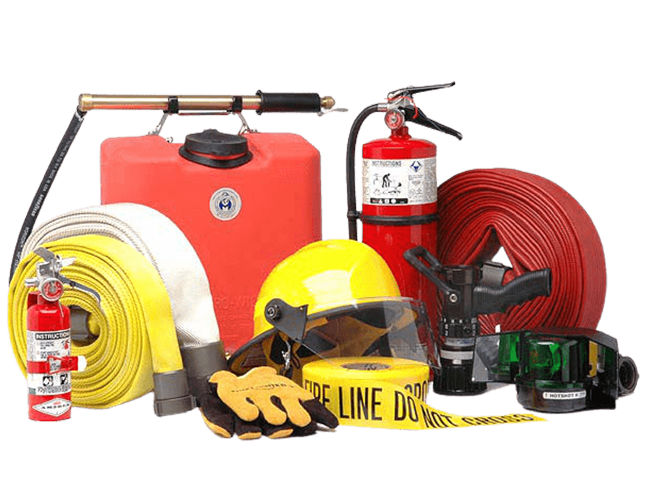The Importance of Fire Fighting Pumps
The Importance of Fire Fighting Pumps: A Critical Component in Fire Safety

Introduction
As one of the leading fire equipment suppliers in Doha, Qatar, RGIFIRE provides high-quality, QCDD approved firefighting pumps and complete fire protection solutions to ensure safety, compliance, and reliability for residential, commercial, and industrial clients. Fire is one of the most unpredictable and devastating hazards, threatening lives, property, and businesses across Doha, Qatar. To combat these risks effectively, advanced fire suppression systems are essential. Among their most vital components are firefighting pumps, which deliver water at the required pressure and volume to control and extinguish fires.
Understanding Fire Fighting Pumps
Firefighting pumps are specialized devices designed to provide a high-pressure water supply to extinguish fires effectively. These pumps draw water from various sources, such as underground reservoirs, lakes, ponds, or municipal water supplies, and distribute it through hoses, hydrants, or sprinkler systems to combat fires. They are commonly used in residential buildings, commercial establishments, industrial plants, and public facilities to ensure an adequate and reliable water supply during emergencies.
Fire pumps are generally powered by electric motors, diesel engines, or steam turbines, depending on the operational needs of the fire protection system. Their selection is determined by factors such as the size of the protected area, water supply availability, and compliance with fire safety regulations.
The Essential Role of Fire Fighting Pumps
Ensuring Adequate Water Pressure for Fire Suppression
One of the primary functions of a fire pump is to boost water pressure to levels required for effective firefighting. In many cases, municipal water supply systems may not provide sufficient pressure to support fire protection infrastructure, particularly in high-rise buildings, large industrial facilities, or remote locations. Firefighting pumps compensate for these limitations by delivering high-pressure water where and when it is needed most.

Enhancing Fire Suppression Capabilities
Fires spread rapidly, and a delayed or inadequate response can lead to catastrophic consequences. Firefighting pumps ensure that water is delivered at a steady and powerful rate, helping to control and extinguish fires before they escalate. By maintaining a reliable water flow, these pumps significantly improve the efficiency of fire suppression systems, reducing property damage and potentially saving lives.

Supporting Automatic Fire Sprinkler Systems
Automatic fire sprinkler systems are a crucial line of defense against fires in residential, commercial, and industrial buildings. However, these systems rely on a consistent and adequately pressurized water supply to function effectively. Fire pumps play a key role in maintaining the necessary pressure to ensure sprinklers activate promptly and distribute water evenly, preventing the spread of fire before it becomes uncontrollable.

Providing Fire Protection in Remote and Rural Areas
In rural and remote locations, access to municipal water supplies with sufficient pressure is often limited or nonexistent. Firefighting pumps enable water to be drawn from alternative sources, such as lakes, wells, or dedicated storage tanks, ensuring effective fire suppression capabilities even in isolated areas. This is particularly crucial for agricultural operations, forested regions, and communities without a robust municipal water infrastructure.

Compliance with Fire Safety Regulations and Standards
Many fire safety codes and regulations mandate the installation of firefighting pumps in buildings, particularly in commercial and industrial settings. Compliance with these regulations is essential not only for ensuring fire safety but also for avoiding legal penalties and financial liabilities. Investing in a properly designed and well-maintained fire pump system helps businesses meet regulatory requirements while safeguarding people and assets.

Ensuring Adequate Water Pressure for Fire Suppression

One of the primary functions of a fire pump is to boost water pressure to levels required for effective firefighting. In many cases, municipal water supply systems may not provide sufficient pressure to support fire protection infrastructure, particularly in high-rise buildings, large industrial facilities, or remote locations. Firefighting pumps compensate for these limitations by delivering high-pressure water where and when it is needed most.
Enhancing Fire Suppression Capabilities

Fires spread rapidly, and a delayed or inadequate response can lead to catastrophic consequences. Firefighting pumps ensure that water is delivered at a steady and powerful rate, helping to control and extinguish fires before they escalate. By maintaining a reliable water flow, these pumps significantly improve the efficiency of fire suppression systems, reducing property damage and potentially saving lives.
Supporting Automatic Fire Sprinkler Systems

Automatic fire sprinkler systems are a crucial line of defense against fires in residential, commercial, and industrial buildings. However, these systems rely on a consistent and adequately pressurized water supply to function effectively. Fire pumps play a key role in maintaining the necessary pressure to ensure sprinklers activate promptly and distribute water evenly, preventing the spread of fire before it becomes uncontrollable.
Providing Fire Protection in Remote and Rural Areas

In rural and remote locations, access to municipal water supplies with sufficient pressure is often limited or nonexistent. Firefighting pumps enable water to be drawn from alternative sources, such as lakes, wells, or dedicated storage tanks, ensuring effective fire suppression capabilities even in isolated areas. This is particularly crucial for agricultural operations, forested regions, and communities without a robust municipal water infrastructure.
Compliance with Fire Safety Regulations and Standards

Many fire safety codes and regulations mandate the installation of firefighting pumps in buildings, particularly in commercial and industrial settings. Compliance with these regulations is essential not only for ensuring fire safety but also for avoiding legal penalties and financial liabilities. Investing in a properly designed and well-maintained fire pump system helps businesses meet regulatory requirements while safeguarding people and assets.
Types of Fire Fighting Pumps
Firefighting pumps come in various types, each designed to meet specific operational needs. Some of the most common types include:
Centrifugal Fire Pumps
These pumps use an impeller to generate centrifugal force, increasing water pressure and flow rate. They are commonly used in high-rise buildings, commercial facilities, and municipal fire protection systems.
Positive Displacement Pumps
These pumps provide a consistent and reliable water flow, making them suitable for applications that require steady pressure, such as foam-based fire suppression systems.
Portable Fire Pumps
Designed for mobility, these lightweight pumps are used by firefighters and emergency responders in situations where fixed fire suppression systems are unavailable.
Floating Fire Pumps
Used in areas with natural water sources, such as lakes or rivers, these pumps can provide an immediate water supply in remote locations.
Diesel and Electric Motor Fire Pumps
Depending on the power source, these pumps offer versatility for different environments and operational needs. Diesel-driven pumps are ideal for situations where electricity may be unreliable.
Vertical Fire Pumps
These pumps are designed for applications requiring a small footprint and are often used in high-rise buildings and industrial facilities where space is limited. They draw water from deep sources and provide high efficiency for large-scale fire protection.
Horizontal Fire Pumps
Typically used in areas where space is not a constraint, horizontal fire pumps offer easy maintenance and are widely used in commercial and industrial fire protection systems. They provide reliable performance and are often chosen for their durability and ease of access.
The Importance of Regular Maintenance
To ensure optimal performance and reliability, firefighting pumps require routine inspection and maintenance. A well-maintained pump is more likely to function correctly during an emergency, preventing potential failures that could lead to severe consequences. Recommended maintenance procedures include:
- Conducting regular inspections for wear, leaks, and mechanical issues.
- Testing the pump’s pressure and flow rate to verify operational efficiency.
- Ensuring the pump’s power source (electric or diesel) is in working condition.
- Keeping suction and discharge lines clear of obstructions to maintain optimal water flow.
- Performing routine lubrication and component checks to extend the lifespan of the pump.
Building owners and facility managers should schedule periodic professional maintenance and testing in accordance with fire safety regulations and manufacturer recommendations to ensure compliance and reliability.
Conclusion
Firefighting pumps are a fundamental component of any fire protection system. By ensuring a high-pressure and reliable water supply, they play a crucial role in fire suppression efforts, protecting lives, property, and businesses from devastating fire incidents. Investing in high-quality firefighting pumps, ensuring proper installation, and committing to regular maintenance are essential steps toward enhancing fire safety preparedness. Whether in high-rise buildings, industrial facilities, or remote areas, these pumps are indispensable in mitigating fire risks and ensuring compliance with fire protection standards.


